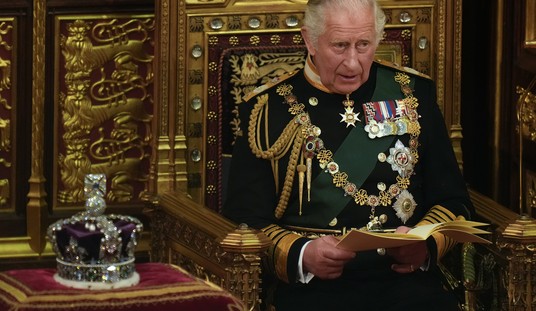No one expected the FDA’s advisory panel to reject the Moderna vaccine against COVID-19. However, the unanimous embrace of an emergency-use authorization for Moderna (with one abstention) gives it a better score than last week’s 17-4 recommendation for Pfizer’s vaccine. The CNBC panel calls this “momentous,” especially since this is Moderna’s first successful vaccine ever.
That’s quite a coup for the young start-up:
An influential Food and Drug Administration advisory panel on Thursday overwhelmingly backed Moderna’s coronavirus vaccine, a key step paving the way to distribute the second Covid-19 vaccine in the United States next week.
The nonbinding decision, which was adopted 20 to 0 with one abstention, from the FDA’s Vaccines and Related Biological Products Advisory Committee came exactly a week after the outside group of vaccine and infectious disease experts voted to recommend Pfizer and BioNTech’s vaccine for an emergency use authorization, or EUA. The agency granted Pfizer’s EUA the next day and the first inoculations in the U.S. were given Monday.
The FDA advisory committee plays a key role in approving flu and other vaccines in the U.S., verifying the shots are safe for public use. While the FDA doesn’t have to follow the advisory committee’s recommendation, it often does. The U.S. plans to ship just under 6 million doses next week, pending the agency’s OK, Gen. Gustave Perna, who oversees logistics for the Operation Warp Speed vaccine project, told reporters Monday.
There’s more good news to go along with this recommendation. Thanks to the more flexible storage requirements, the Moderna vaccine can fill some gaps in distribution of the Pfizer vaccine:
As the nation buckled from uncontrolled spread of the disease, with 3,611 deaths on Wednesday setting yet another horrific record, a panel of independent experts recommended by a vote of 20 in favor and one abstention, that the Food and Drug Administration authorize the Moderna vaccine for emergency use. The formal decision, expected on Friday, would clear the way for some 5.9 million doses to be shipped around the country starting this weekend.
The Moderna vaccine can be distributed more widely because it can be stored at normal freezer temperatures and, unlike the Pfizer-BioNTech vaccine, does not require ultracold storage. It also comes in much smaller batches, making it easier for hospitals in less populated areas to use quickly.
“Moderna can go to more places,” Dr. Mandy Cohen, North Carolina’s secretary of health and human services, said this week. “We hope to be in all 100 counties with some amount of vaccine — small allocations at first — by the end of next week, assuming Moderna gets approved this week and we get our allocations delivered over the course of next week.”
Politico reflects on what this means for the upstart. They basically made it to the major leagues on their first big success. That itself has some implications for production, however:
But while the maker of the first authorized shot, Pfizer, is a global pharmaceutical giant that has pumped out dozens of blockbusters including Viagra and even ChapStick, Moderna had never had a vaccine reach late-stage trials before it became the first of dozens of coronavirus vaccine hopefuls to hit that milestone this summer.
Now the 10-year-old Massachusetts biotech is the cornerstone of the United States’ strategy to defeat a virus that has killed more than 308,000 Americans so far.
The Trump administration last week doubled its vaccine order from Moderna to 200 million doses after Pfizer said it wouldn’t be able to deliver more vaccine until the third quarter of 2021. The success of the country’s immunization campaign could depend on Moderna’s ability to deliver those shots without delay — a potentially tricky task for a firm without extensive manufacturing facilities of its own, with a vaccine based on cutting-edge technology.
“They’re untested, that’s the main thing. This is their first rodeo,” said Ira Loss, senior health analyst with Washington Analysis.
Thanks to money from Operation Warp Speed, however, Moderna insists that it’s ready to join the big boys of Big Pharma. They do have a large-scale manufacturing facility in Norwood, Massachusetts, but they also added a huge boost to production capacity by partnering with Swiss giant Lonza AG. That should help buffer the massive production and logistical pressures that the expected FDA emergency-use authorization will trigger, but again, this is their first rodeo. It might take a few weeks to work the kinks out entirely.
Tomorrow, the FDA will meet to consider the recommendation. When that happened last week, FDA commissioner Stephen Hahn suggested that the decision on the EUA might take until Saturday — which prompted some tense conversations with the White House. They announced the grant of the EUA late on Friday, which triggered the shipments over the weekend. We can probably expect a similar time frame tomorrow, perhaps even by the end of business tomorrow.








Join the conversation as a VIP Member